Canada Research Chair in Electrophysiology and Adult Congenital Heart Disease - Dr. Paul Khairy
Dr. Paul Khairy is a cardiologist and Director of the Adult Congenital Heart Disease Centre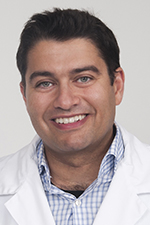
Research goal : To study arrhythmia in adults with a congenital heart disease.
Description : Approximately 75 out of 1,000 newborns have some form of heart defect, and it has been estimated that 25% of these cases are of moderate to high severity.
Recent advances in pediatric cardiology and heart surgery have meant that a growing number of people with a congenital heart defect can reach adulthood and live a normal life. However, either due to postoperative stress or stress caused by the defects themselves, many of these people still die too young and suddenly. We obviously have much to learn about the different types of arrhythmia, their degree of severity, and the most appropriate treatments.
Dr. Paul Khairy has made arrhythmia his specialty. Arrhythmia refers to any abnormality in heart rhythm or rate. These defects can have various causes and produce a wide range of symptoms, some of which are barely noticeable, while others can lead to sudden death. Dr. Khairy is particularly interested in arrhythmia in adults with a congenital heart disease. He is trying to gain more in-depth clinical knowledge on the incidence, subtypes, scope and severity of arrhythmia. He is also hoping to refine medical practices to identify high-risk patients and improve treatment for this population.
Canada Research Chair in Genetics and Genomic Medicine - Dr. John D. Rioux
Dr. John D. Rioux is an associate Professor of Medicine at Université de Montréal and Director of the Laboratory in the Genetics and Genomic Medicine of Inflammation at the Montreal Heart Institute
Research goal : To use genetics and genomic medecine to identify the causes of common diseases and develop approaches for more personalized treatment.
Description : Common diseases such as chronic inflammatory diseases (e.g., Crohn’s disease, lupus, multiple sclerosis) and cardiovascular diseases (e.g., sudden cardiac death, atherosclerosis) are complex conditions caused by a number of genetic and non-genetic risk factors (e.g., smoking).
Many currently available treatments address symptoms instead of the underlying biological causes of the disease. Even when treatments are developed to target biological mechanisms, they are often used in a general way and can therefore be ineffective for some patients. However, this situation could soon change thanks to the work of Dr. Rioux.
For a number of years, Dr. Rioux and his colleagues have catalogued a large number of genetic risk factors for these common diseases and have uncovered some key biological mechanisms for these illnesses. Dr. Rioux uses cutting-edge technology in genetics, genomics and integrative biology to gain an in-depth understanding of the disease and the biological differences among patients.
His research contributes to better diagnostic tools and clinical treatment for patients. Thanks to identified therapeutic targets, Dr. Rioux's research could lead to a personalized approach to treat common diseases.
Canada Research Chair in Translational and Personalized Medicine - Dr. Jean-Claude Tardif
Dr. Jean-Claude Tardif is a cardiologist and Director of the Montreal Heart Institute Research Centre
Research goal : To discover, develop and validate cardiopathy treatment and translate hypotheses and innovative concepts into clinical trials and practice.
Description : The world is facing a growing prevalence of cardiopathy and a larger population of people at risk of developing one of these diseases. Although effective treatments have been developed, we urgently need new tools to evaluate new potential treatments and reduce the burden of cardiovascular risk.
Dr. Jean-Claude Tardif and his team are looking for some of these new tools. Their work involves the discovery, development and validation of biomarkers (measurements that assess cardiac function) and innovative cardiovascular treatments.
Dr. Tardif aims to develop treatments to fight atherosclerosis (thickening and hardening of the artery walls) and related pathologies as well as to discover and validate innovative cardiovascular biomarkers. He will then carry out translational research (to turn biological discoveries into drug therapies) on the biomarkers and the anti-atherosclerotic therapies that he is developing. These biomarkers will be tested in preclinical studies and assessed with rigorous clinical trials using vast patient cohorts and the world-class Montreal Heart Institute Coordinating Centre.
Dr. Jean-Claude Tardif's goal is to transform his research into clinical applications that meet unmet medical needs and that improve patient care. His research should lead to new cardiopathy treatments that will benefit both patients and health care systems around the world.
Canada Research Chair in Complex Trait Genetics - Dr. Guillaume Lettre
Dr. Guillaume Lettre is a researcher at the Montreal Heart Institute and Assistant Professor of Medicine at Université de Montréal
Research goal : To use genetics to discover why some patients suffer from common genetic diseases such as myocardial infarction (heart attack), while other people are spared.
Description : We have never understood why some people with a healthy lifestyle suddenly become seriously ill, whereas other people who smoke and have a bad diet do not become afflicted with coronary diseases. This is what Dr. Guillaume Lettre, Canada Research Chair in Complex Trait Genetics, is trying to find out. He and his team are identifying the genetic variations that predispose people to common cardiovascular diseases, such as heart attack and hypertension, or that protect them from these conditions.
Dr. Lettre is also trying to discover why patients with the same disease sometimes have different complications. His focus is on sickle-cell anemia, a hereditary blood disease that affects approximately 20,000 Canadians.
By identifying and characterizing new genes through his research, Dr. Lettre is contributing to better strategies to diagnose and treat heart and blood diseases.
Carolyn and Richard J. Renaud Research Chair in Heart Failure - Dr. Michel White
Dr. Michel White is a cardiologist and Director of the Heart Failure Research Group at the Montreal Heart Institute
Research goal : To study the role of biomarker changes that can predict the progression of heart failure. Dr. White's research also examines metabolic disorders related to post-heart transplant complications, graft-versus-host disease as well as personalized pharmacological treatments in transplant recipients and heart failure patients.
Description : With a prevalence of 1% to 2% in the general population, heart failure has become a major clinical and public health problem. Approximately 300,000 Canadians suffer from congestive heart failure. With the aging of the population (as the prevalence of heart failure increases almost exponentially with age), this number has reached a staggering level. The number of patients who suffer from heart failure will continue to grow for decades to come in contrast to a number of other cardiovascular pathologies.
Heart failure is a clinical syndrome in which the heart is unable to pump enough blood to meet the body's metabolic needs. In approximately two thirds of cases, the dysfunction is systolic and generally caused by defective heart muscle contraction. Coronary artery disease and high blood pressure are often the cause. Approximately one third of patients have a predominantly diastolic disorder resulting from impaired filling of the left ventricle that is associated with a relaxation defect of the myocardium. This type of heart failure is particularly prevalent in the elderly and is a condition that is not well understood.
Despite recent advances in our understanding of the physiopathology of heart failure and the development of new drugs, the prognosis remains serious. The 5-year mortality rate is 50%, and heart failure is the main cause of cardiovascular hospitalizations in people over the age of 65. The costs associated with heart failure are twice as high as the costs associated with all cancers put together. By detecting heart failure early and treating it effectively, we can improve patients' quality of life and reduce the number of hospitalizations and the mortality rate.
Michal and Renata Hornstein Heart Surgery Chair - Dr. Raymond Cartier
Dr Raymond Cartier is a cardiac surgeon at the Montreal Heart Institute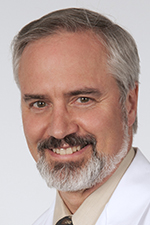
Research goal : Development of minimally invasive valve surgery under endoscopic control.
.
.
.
.
.
.
.
.
.
.
.
Paul-David Chair in Cardiovascular Electrophysiology at Université de Montréal - Dr. Stanley Nattel
Dr. Stanley Nattel is a cardiologist and researcher at the Montreal Heart Institute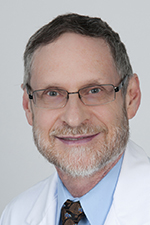
Research goal : To improve therapeutic approaches for heart arrhythmias.
Description : To work properly, the heart has to beat in a regular rhythmic pattern. When this pattern is disrupted, heart function may decline or even stop altogether. Heart arrhythmias are the leading cause of sudden death and a major factor in worldwide mortality and morbidity. These conditions also represent a major part of health care costs.
Dr. Nattel's research is based on the general hypothesis that the underlying mechanisms of arrhythmia are understandable and that once understood, they can be used as a basis to develop innovative, effective and safe therapeutic approaches.
Dr. Nattel's laboratory stands out through its multidisciplinarity. His team uses a wide range of techniques to understand cardiac electrical function in a number of areas: the genes that encode for the small ultraspecialized channels that carry electrical signals across cardiac cell membranes; the functioning of these channels, which is assessed using microelectrodes connected to cell membranes; animal models of human diseases that trigger arrhythmia; and mathematical models to understand the underlying mechanisms of arrhythmia and to relate the results to various areas of study.
Dr. Nattel's laboratory has made a number of vital scientific breakthroughs. These include the discovery of new cardiac channels that serve as targets for new antiarrhythmic molecules; the identification of a new therapeutic approach that prevents the development of the arrhythmia substrate instead of targeting the final electrical product (which has become a standard approach in modern cardiology); and the delineation of the underlying molecular pathogenesis for a number of arrhythmogenic syndromes in humans.
As the Paul-David Chair in Cardiovascular Electrophysiology, Dr. Nattel has maintained his status as a world leader in research into new therapies for cardiac arrhythmia while making important advances in this field at the Montreal Heart Institute and Université de Montréal.
Pfizer Chair in Atherosclerosis - Dr. Jean-Claude Tardif
Dr. Jean-Claude Tardif is a cardiologist and Director of the Montreal Heart Institute Research Centre
Research goal : To advance research in the promising field of the role of new biomarkers and new treatments to fight against atherosclerosis.
Description : Atherosclerosis is the leading cause of death worldwide. The creation of this Chair has placed Canadian researchers at the forefront of this particular field of cardiology, while the skills, expertise and know-how of the Chair's team will pave the way to substantial medical advances.
The work of this Chair aims to not only identify interventions that can stabilize or reverse atherosclerosis but also quantify these effects through preclinical and clinical trials. The team will also use cutting-edge imaging techniques to assess the effects of new treatments on vulnerable atheromatous plaque.
The co-investigators of this project want to study interactions between the composition of plaque and the physical forces involved in breaking them down through in vitro and ex vivo models as well as #through studies on# atherosclerosis patients. The in vivo quantification of inflammation, endothelial function and other key processes will also be evaluated.
Philippa and Marvin Carsley Cardiology Chair - Dr. Peter Guerra
Dr. Peter Guerra is a cardiologist, electrophysiologist and Chief, Department of Medicine and Cardiology at the Montreal Heart Institute.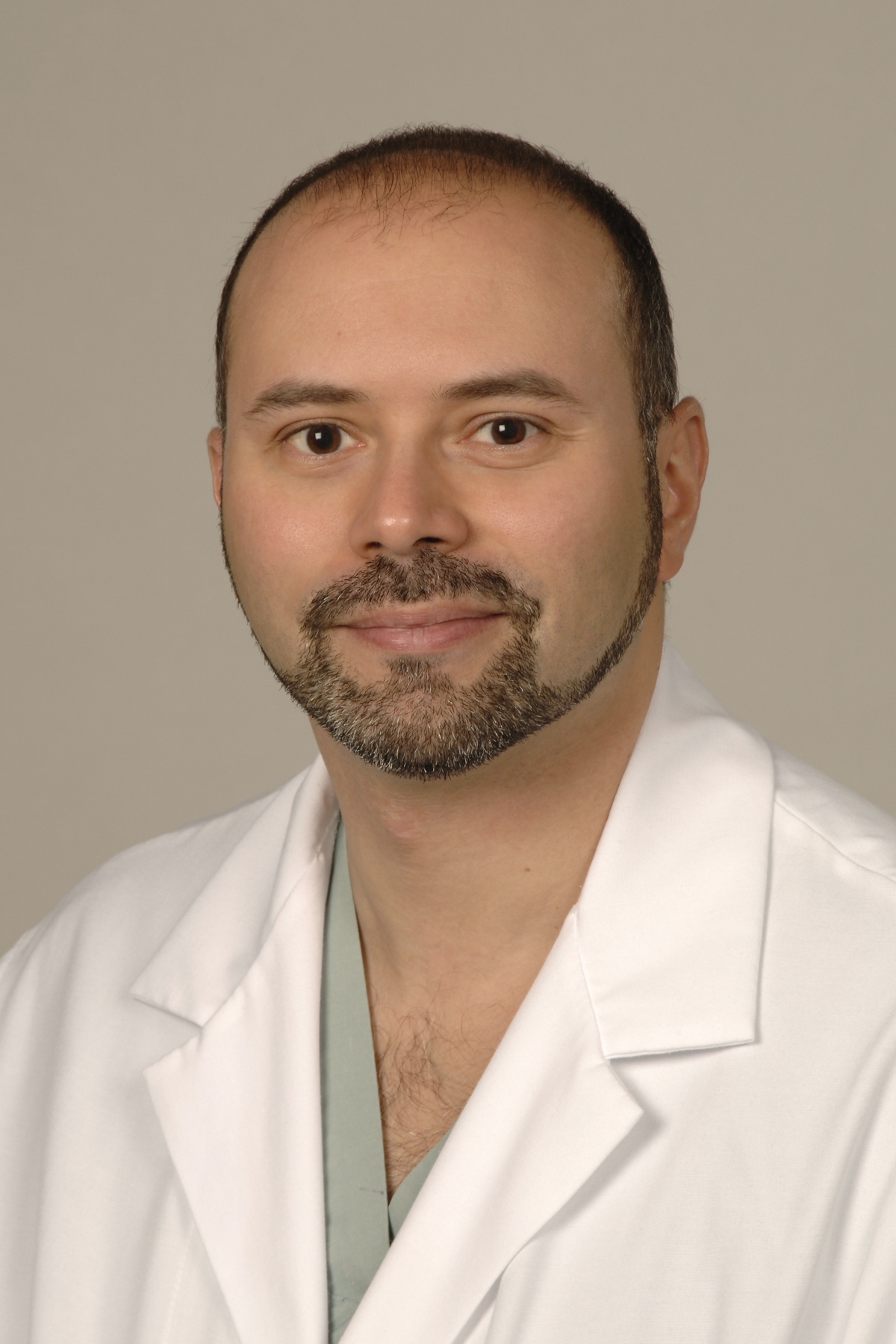
Research goal : The goal of this Chair is to develop a research program focused on genetics and cardiac pharmacogenomics. The position also includes a practical component with a clinic dedicated to genetic cardiac diseases. In terms of training, the Chair is also responsible for transferring knowledge gained from research and observations made in the new clinic.
Description : In Quebec, a number of heart diseases have a genetic basis. Some rare genetic diseases can have serious consequences, such as sudden death in young people. In the case of coronary artery disease, which affects Quebecers in particular, 20% to 30% of the population has genetic predispositions to this type of pathology.
Genetics and pharmacogenomics research is only in its infancy. With the creation of the Philippa and Marvin Carsley Cardiology Chair, Université de Montréal and the Montreal Heart Institute have positioned themselves at the forefront of research in this area. Thanks to this Chair, the Montreal Heart Institute can carry out highly innovative research and cement its position as a leader in the field.
Yves Des Groseillers and André Bérard Chair in Interventional Cardiology at Université de Montréal - Dr. Philippe L'Allier
Dr. Philippe L'Allier is a cardiologist and researcher, Chief of the Interventional Cardiology and Hemodynamics Service, Associate Professor at Université de Montréal, and Director of the Optical Coherence Tomography Laboratory and Quantitative Coronary Angiography Laboratory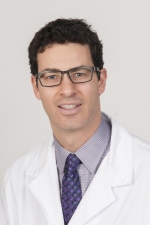
Research goal : To support the development of new technologies and research in interventional cardiology.
Description : In recent years, funding from this Chair has gone towards the basic research of the Interventional Cardiology and Hemodynamics Service into regenerative stem cell therapy to treat acute ischemic cardiomyopathy. This research holds the most promise to regenerate myocardium damaged by an infarct or any other form of cardiomyopathy and to restore ventricular function. Stem cells may also allow new arteries to form (neovascularization) to reoxygenate the myocardium and relieve refractory angina. Specifically, researchers in the #Hemodynamics Service# are trying to determine how #stem# cells can be anchored at target sites. We are currently experimenting with adapted nanotechnology to achieve this.
Michal and Renata Hornstein in Cardiovascular Imaging
Dr. Matthias Friedrich is a cardiologist and the director, CMR Research at the MHI Hornstein Chair in
Cardiovascular Imaging.
Tier 1 Canada Research Chair in Vascular Optical Imaging - Dr. Frédéric Lesage
Researches performed as part of this research chair aim to develop cutting-edge new technologies as regards optical imaging that will allow brain and vascular function exploration. These researches will lead to a better understanding of the impact of vascular diseases on the brain and the heart, and they will contribute to the development of new diagnosis and treatment tools.
